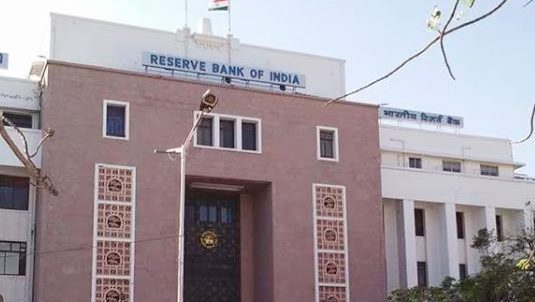The Reserve Bank of India has released the “Regulations at a Glance” handbook, compiled by the Department of Regulation (DoR), to provide a broad overview of the regulatory landscape across various activities and entities. Organized into six chapters, it presents a tabular summary of major regulations issued by the DoR.
Intended for ease of reference and general understanding, the handbook does not replace official circulars, Master Circulars, or Master Directions, which should be consulted for specific regulatory details.
Below, we highlight key regulations applicable to cooperative banks as outlined in the handbook. Excerpts:
LICENSING OF NEW INSTITUTIONS
Paid-up/ Net worth (or other important conditions):
- Urban Cooperative Banks (UCBs): Rs 12.5 lakh – Rs 4 crore (depending on the category of the center and population size). [RBI has stopped accepting fresh applications for granting banking licenses to new UCBs since 2004.]
- Rural Cooperative Banks [State Cooperative Banks (StCBs) and Central Cooperative Banks (CCBs)]: The State Government declares a particular society as an StCB or CCB. RBI ensures adequate capital, governance structure, and earning prospects. RBI grants banking licenses based on NABARD’s recommendations and its internal analysis.
Conditions for Promoters/Promoter Groups:
- Focus on promoters’ educational background, professional competence, financial standing, ability to mobilize requisite capital, and membership.
BRANCH LICENSING
- UCBs:
- Automatic Route: UCBs meeting the Financially Sound and Well Managed (FSWM) criteria are permitted to open new branches, up to 10% of the number of branches (as of the previous financial year), subject to a minimum of one and a maximum of five branches in the approved area of operation.
- Approval Route: The board-approved Annual Business Plan (ABP) for the next financial year must be submitted by FSWM UCBs to RBI’s Regional Office for approval by December 15.
- StCBs:
- Require approval from NABARD and RBI, subject to conditions such as CRAR greater than or equal to 9%, no default in CRR/SLR maintenance in the last financial year, NNPA less than or equal to 5%, a good regulatory compliance track record, and no monetary penalties in the last two financial years.
- DCCBs:
- Conditions specified for StCBs, plus:
- Licensed DCCB must have been operational for at least three years.
- Net profit in the last two financial years.
- Not under RBI directions.
- Conditions specified for StCBs, plus:
GOVERNANCE FRAMEWORK
- Cooperatives: Governed by state/central cooperative society laws.
- Management-related provisions of the Banking Regulation Act, 1949, have been applicable to them since 2020.
- RBI guidelines for UCB directors, including the formation of an Audit Committee of the Board.
- Criteria for appointing the majority of directors, MD/CEO/WTD, maximum continuous tenure of directors, board supersession, etc., under the BR Act, 1949.
- Larger UCBs must appoint an independent Chief Risk Officer (CRO) without additional responsibilities.
- NABARD’s governance guidelines for rural cooperatives.
CREDIT RISK
- Urban Cooperative Banks: Shares, bonds, and debentures (in dematerialized form) – Rs 10 lakh, LTV of 50%.
- Rural Cooperative Banks: Shares, bonds, and debentures – Rs 5 lakh, LTV of 50%.
- Securitization of Standard Assets:
- SCBs, AIFIs, and NBFCs (including HFCs) are allowed.
- RRBs and Cooperative Banks are not permitted for securitization under MD-SSA; SFBs must follow their operating guidelines.
- RRBs and Cooperative Banks are permitted only as transferors of stressed loans.
INTEREST RATE FRAMEWORK AND PRICING OF DEPOSITS FOR SCBs AND COOPERATIVE BANKS
Overarching Principles:
- Interest rates must be uniform across all branches and customers.
- No discrimination between deposits of similar amounts accepted on the same date at different branches.
- Interest rates cannot be negotiated between depositors and banks.
- REs must disclose the schedule of interest rates on deposits in advance.
- Interest rates must be reasonable, consistent, transparent, and subject to supervisory review.
- Interest rates on NRE/NRO deposits cannot be higher than comparable domestic rupee term deposits.
MERGERS AND AMALGAMATIONS
Amalgamation of Banking Companies and Cooperative Banks:
- Governed by the BR Act, 1949.
- RBI has discretionary power under Section 44A to approve voluntary amalgamations of banking companies.
- The draft amalgamation scheme must be approved by shareholders, with 2/3rd majority (by value), before submission to RBI.
- MD on Amalgamation of Private Sector Banks (April 21, 2016) outlines statutory provisions, regulatory criteria, and application procedures.
- Banking Regulation (Amendment) Act, 2020 granted RBI the power to sanction cooperative bank amalgamations under Section 44A read with Section 56.
- MD on Amalgamation of UCBs (March 23, 2021): UCB amalgamation applications are considered when the merging bank, with or without State Government financial support, assures full protection of depositors’ funds.
- Guidelines on DCCB-StCB amalgamation under Sections 44A and 56 were issued on May 24, 2021.
RESOLUTION OF BANKING COMPANIES & COOPERATIVE BANKS
- RBI may apply to the Central Government for the compulsory amalgamation/reconstruction of banking companies (Section 45 of BR Act) and cooperative banks (Section 45 read with Section 56).
- Section 45(4) amendment (2020): RBI can decide on amalgamations during moratorium or at any other time.
- Section 45(6): RBI publishes draft schemes for stakeholder comments before sending them to the Government of India for approval.
- RBI Powers:
- Section 10B: RBI can remove a Chairman or MD of a banking company.
- Section 36ACA: RBI can supersede the Board of banking companies.
- Section 36AAA read with Section 56: RBI can supersede cooperative bank Boards.
- Section 35A: RBI can issue directives for proper management of any banking company.
- Section 36AE: Central Government can acquire banking company undertakings in certain cases.
- Section 22(4): RBI may cancel a bank’s license; banks can appeal to the Central Government within 30 days.
- After license cancellation:
- For banking companies: High Court appoints a liquidator.
- For uni-state cooperative banks: The Registrar of Cooperative Societies appoints a liquidator.
- For multi-state cooperative banks: The Central Registrar appoints a liquidator.













































